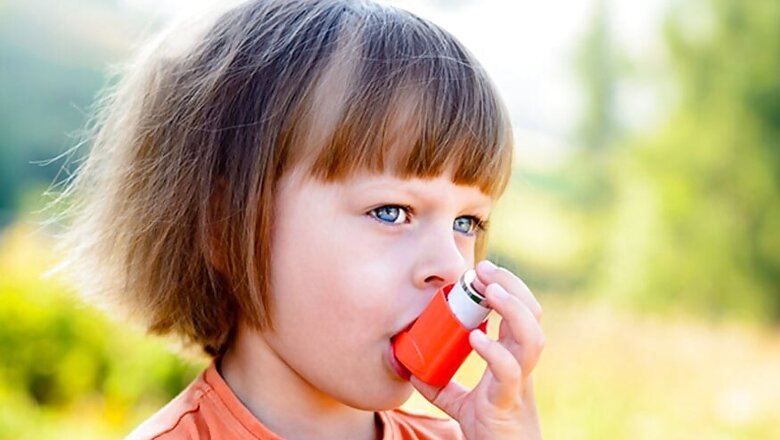
views
New research presented at the European Respiratory Society International Congress on Sunday suggests that children who experience a respiratory tract infection earlier in life are more like to develop asthma and decreased lung function later on.
Dr. Evelien van Meel (MD), from the Generation R Study Group at Erasmus MC University Medical Centre, The Netherlands presented the findings at the Congress, which is currently taking place in Milan, Italy (from September 9 to 13).
For the research, Dr. van Meel and her team looked at 37 groups of children from several European countries including 154,492 children in total to look at the effect of upper and lower respiratory tract infections in early childhood on lung function and asthma.
Dr. van Meel explained that lung function and asthma are two different measures of respiratory health and are only partly related. "Lung function is an objective measure of the function of the lungs and airways. Lung function could be affected without leading to symptoms, or it could lead to asthma or other complaints such as wheezing. Additionally, a child could be diagnosed with asthma but their lung function could be fairly unaffected, for example because they are taking adequate asthma medications."
The length of follow-up varied between the groups, ranging from birth until the age of four to 15 years, with the children's lung function also measured as they grew older with an instrument called a spirometer.
After taking into account factors that could affect the results, such as socio-economic status, lifestyle, birth weight, gestational age at birth, gender, age, height and ethnicity, the team found that upper respiratory tract infections, such as colds, sinusitis, laryngitis, tonsillitis, pharyngitis and otitis, were not associated with worse lung function in later life.
However, lower respiratory tract infections at almost all ages, such as bronchitis, bronchiolitis, pneumonia and general chest infections, were associated with worse lung function.
In addition, the team also found that those who had had upper respiratory infections by the age of five years had a 1.5-fold increased risk of developing asthma in later life, and those who had had a lower respiratory tract infection had a two- to four-fold increased risk of developing asthma in later life.
"At this stage we cannot say for certain whether the relationship is causal," commented Dr. van Meel, "Further studies that measure lung function and wheezing from birth onwards are needed to explore whether the infections cause asthma and lower lung function, or whether wheezing and lower lung function may be predisposing these children to develop the infections."
The team are now planning further research, including what effect antibiotics, paracetamol and second-hand smoke exposure has on the relationships between respiratory tract infections and lung function or asthma.




















Comments
0 comment